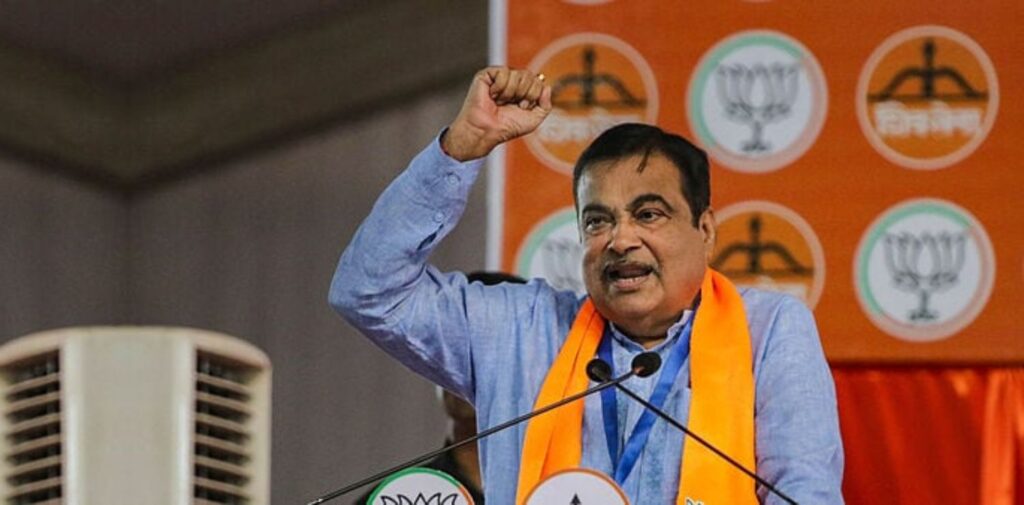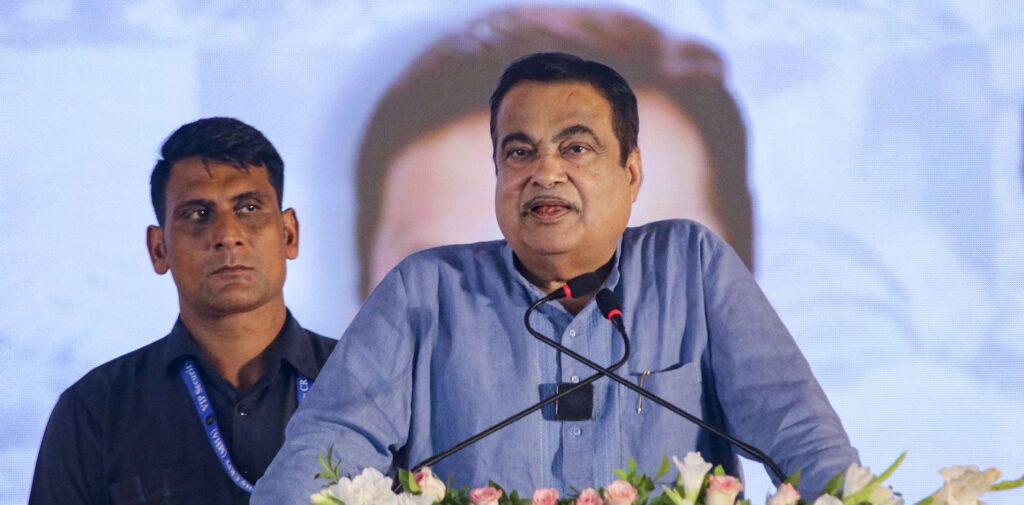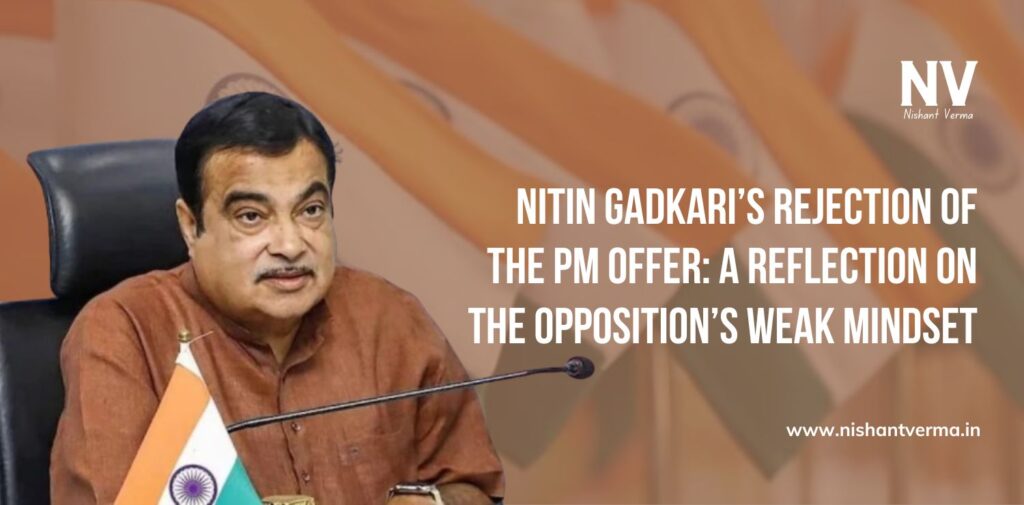In a recent revelation, Union Minister Nitin Gadkari disclosed that he was approached by an opposition party with an offer to become the Prime Minister of India. His response, emphasizing that becoming Prime Minister was not his ambition, raises several intriguing questions about the current state of the Indian political landscape, particularly regarding the opposition parties. This incident not only sheds light on Gadkari’s character and political philosophy but also underscores the weak and poorly strategized mindset of the opposition.
An Unprecedented Offer: The Opposition’s Desperation
Gadkari’s revelation that he was approached for the highest office reflects a stark reality about the opposition’s desperation in the face of electoral challenges. The offer to someone from the ruling party, especially a prominent figure like Gadkari, signals that the opposition is not just looking to strengthen its position but is willing to resort to unorthodox strategies to gain power. This approach can be interpreted as a sign of weakness, revealing an inherent lack of confidence in their leadership and agenda.
The opposition’s willingness to offer the Prime Ministership to a minister from a rival party indicates a fundamental misunderstanding of political dynamics. Rather than building a cohesive and compelling narrative that resonates with voters, they seem to be engaging in tactical maneuvers that reflect an absence of strategic vision. The offer made to Gadkari can be viewed as a last-ditch effort by a fragmented opposition, suggesting that they are not confident enough in their candidates to lead the charge.

Nitin Gadkari: A Leader with Integrity
Nitin Gadkari’s response to the offer speaks volumes about his integrity and political ethos. His assertion that the Prime Ministership is not his ambition showcases a sense of duty over personal ambition, a trait that is often lacking in contemporary politics. In an era where many politicians are driven by personal gain and the quest for power, Gadkari’s stance is refreshing and serves as a reminder of what true leadership should embody.
Gadkari’s refusal also highlights a crucial distinction between ambition and capability. While many politicians may crave the title of Prime Minister, true leadership requires a commitment to serve the people, a quality that Gadkari exemplifies. His decision not to pursue the offer further emphasizes the need for leaders who prioritize the nation’s interests over personal accolades.
The Opposition’s Failure to Connect with Voters
One of the most significant failures of the opposition parties is their inability to connect with the electorate on critical issues. Instead of focusing on grassroots challenges and presenting solutions, they seem to be entangled in political gamesmanship. The offer to Gadkari, rather than stemming from a solid ideological foundation, suggests that the opposition is still trying to find a foothold in a political landscape dominated by the ruling party.
This lack of a clear and relatable vision has made it increasingly difficult for the opposition to gain traction among voters. Political parties must create narratives that resonate with the public, addressing their concerns and aspirations. However, the opposition has often relied on negative campaigning and personal attacks, which fail to inspire confidence or loyalty.
A Disjointed Opposition: Infighting and Lack of Cohesion
The political landscape in India is currently marked by fragmentation and infighting among opposition parties. Rather than presenting a united front against the ruling party, opposition factions often find themselves at odds, undermining their collective strength. This disunity reflects a deeper malaise within the opposition, showcasing a lack of coherent strategy and shared vision.
The offer to Gadkari is emblematic of this disjointedness. It reveals that instead of rallying behind a strong candidate with a clear agenda, the opposition resorts to opportunistic alliances, hoping to capitalize on any available chance to seize power. This approach not only reflects a weak mindset but also demonstrates a lack of faith in their political machinery.

The Need for a New Political Narrative
For the opposition to reclaim its relevance in Indian politics, there is an urgent need to construct a new political narrative. This narrative should be built on principles of inclusivity, accountability, and transparency. Engaging with the electorate and addressing pressing issues such as unemployment, inflation, and healthcare should take precedence over the pursuit of power through backdoor dealings.
Furthermore, the opposition must cultivate leaders who embody the values and aspirations of the citizens. Nitin Gadkari’s integrity serves as a reminder that voters are looking for authenticity and genuine commitment rather than mere political posturing. If the opposition continues to rely on disjointed strategies, they will remain in the shadows of a ruling party that has effectively connected with the electorate.
Conclusion: A Call for Reflective Leadership
The offer made to Nitin Gadkari serves as a mirror reflecting the weaknesses of the opposition. It emphasizes their lack of a cohesive strategy, the desperation of their tactics, and the necessity for a genuine political narrative. Gadkari’s refusal to pursue the Prime Ministership is a reminder that leadership should be about service rather than ambition.
As India moves forward, the need for responsible, reflective, and principled leadership becomes increasingly paramount. The opposition must re-evaluate its approach, focusing on building a strong ideological framework that resonates with voters. Only then can they hope to present a credible alternative to the current ruling establishment and regain the trust of the electorate. Without this fundamental shift, the opposition will continue to struggle in a landscape where their relevance is waning, forever overshadowed by those who prioritize the nation over personal ambition.




